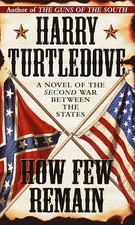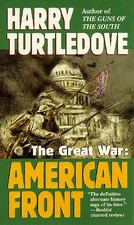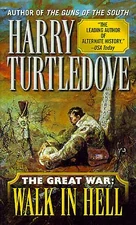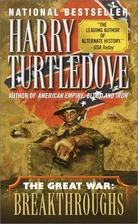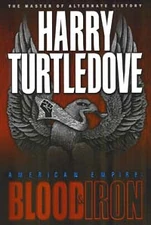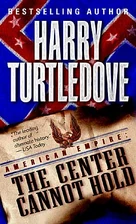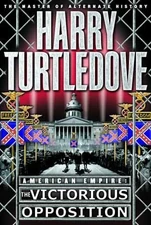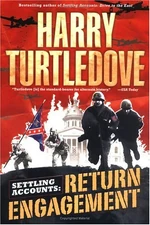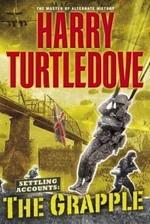| Huey Long | |

| |
| Historical Figure | |
| Nationality: | United States |
| Year of Birth: | 1893 |
| Year of Death: | 1935 |
| Cause of Death: | Shot to death |
| Religion: | Baptist |
| Occupation: | Politician, Lawyer |
| Spouse: | Rose McConnell |
| Children: | Russell B. Long |
| Relatives: | "Doc" George Long, Earl Long (brothers) |
| Political Party: | Democratic Party |
| Political Office(s): | Governor of Louisiana, United States Senator from Louisiana |
| Fictional Appearances: | |
Huey Pierce Long, Jr. (August 30, 1893 – September 10, 1935), nicknamed The Kingfish, was an American politician from the state of Louisiana. A Democrat, he was noted for his radical populist policies. He served as Governor of Louisiana from 1928 to 1932 and as a U.S. senator from 1932 to 1935.
Long created the Share Our Wealth program in 1934, which proposed new wealth redistribution measures in the form of a net asset tax on large corporations and individuals of great wealth to curb the poverty and crime resulting from the Great Depression. He was an ardent critic of the Federal Reserve System.
A supporter of Franklin D. Roosevelt's election as president in 1932, Long split with FDR in June 1933 to plan his own presidential bid for 1936, supported by the influential Catholic priest and radio commentator Charles Coughlin. The following month, Long was shot by Carl Alden Weiss, the son-in-law of a judge who lost his position due to a redistricting bill Long had made a top priority. While Long's wounds were not immediately fatal, he died two days later on September 10, 1935. As is the case with a number of assassinations, Long's death has been subject to intense scrutiny and conspiracy theories have developed with time.
Huey Long in Joe Steele[]
| Joe Steele POD: 1878; Relevant POD: July, 1932 | |
| Novel or Story?: | Both |
| Type of Appearance: | Direct |
| Date of Death: | 1934 |
| Cause of Death: | Assassination by gunshot |
| Political Office(s): | United States Senator from Louisiana |
Louisiana Senator Huey Long (1893-1934) sought the Democratic presidential nomination in 1932, personally attending the Chicago convention.[1] As the votes began to narrow on California representative Joe Steele and New York governor Franklin D. Roosevelt, Long nonetheless carried enough delegates that he was positioned to be a kingmaker, with both camps courting his support.[2] When Roosevelt was killed in a fire at the Executive Mansion in Albany, Long redoubled in his efforts to capture the nomination, but failed spectacularly,[3] with Steele winning first the nomination, and then defeating Republican incumbent Herbert Hoover that November.
Long continued to snipe at Steele throughout the first years of Steele's presidency. In the Fall of 1934, Long was "identified" by the Supreme Court Four as one of their allies in their efforts to stop Joe Steele's agenda.[4] Long immediately returned to Baton Rouge ahead of an arrest, and began railing against Steele's new "War of Northern Aggression". Long's hold on the state was such that even Federal officers kowtowed to him.[5] Steele's calm response was that the laws of the country had to be obeyed, and that Long should taken into custody.[6]
Instead, Long traveled around Louisiana making speeches. While in Alexandria, Long was shot through the head by a sniper while speaking in front of city hall, killing him instantly. His bodyguards responded in a confused manner, with several opening fire into the crowd, killing an additional twenty people.[7] Long's assassin was never caught.
Long's body lay in state in the rotunda of the Capitol in Baton Rogue. He received a lavish funeral, and was buried on the lawn in front of the Capitol building. The minister who preached the funeral oration promised that God would smite those who assassinated Long, and singled out Joe Steele as "the mustachioed serpent in the White House." This prompted the crowd to call for Steele's hanging.[8]
Literary comment[]
In the short story, Huey Long is killed "while trying to escape" from prison at Ft. Leavenworth, an event implicitly engineered by Steele.
Huey Long in Southern Victory[]
| Southern Victory POD: September 10, 1862 | |
| Appearance(s): | The Center Cannot Hold; The Victorious Opposition† |
| Type of Appearance: | Direct |
| Nationality: | Confederate States |
| Date of Death: | 1937 |
| Cause of Death: | Assassination by gunshot |
| Political Party: | Radical Liberal Party |
| Political Office(s): | Governor of Louisiana |
Huey Long (1893-1937) was a Louisiana politician, and a leader of the Radical Liberal Party. He served as the governor through the 1930s, up until his death in 1937. In the last years of his life, Long governed Louisiana in a dictatorial fashion, adopting the tactics employed by President Jake Featherston as Featherston took control of the Confederate States. However, unlike Featherston, Long did not resort to incitement against and persecution of Blacks. Consequently, Long became one of Featherston's last domestic opponents, and paid for that opposition with his life.
Long's solid hold and popularity in Louisiana brought him to the attention of the national Radical Liberal Party, which sought a strong personality to stand against Jake Featherston and the Freedom Party. In 1933, he ran for both Vice President with Cordell Hull on the Radical Liberal ticket[9], and simultaneously ran for re-election as Louisiana governor. He lost his bid for national office, but his control of the political machines in Baton Rouge and New Orleans insured him an easy re-election to governorship.[10]
As Featherston shored up his absolute grip on the C.S., Long and his followers did the same within Louisiana, consciously using Freedom Party tactics against them within the state. In the C.S.A. at large, Radical Liberals and other opponents of Featherston were arrested and thrown into concentration camps; inside Louisiana, Long arrested Freedom Party men, who were sent to Camp Dependable, Louisiana's own concentration camp.[11]
Long battled the Freedom Party at every turn, with mixed success. When a Louisiana radio station that refused to follow Freedomization protocols was burned to the ground by Freedom Party Stalwarts, Long had them arrested and tried for arson. Long's hold on his state was not absolute, however, as Freedom agents intimidated the jury, and the suspects were found not guilty.
Huey Long was still a popular leader to the general public, even as he battled the Freedomites for supremacy. In Baton Rouge, the newly completed statehouse, at 34 stories, was the largest capitol in North America, and a monument to Long's rule. A massive highway-building program gave jobs to thousands of unemployed men. These grandiose acts and Long's flamboyant image earned him the nickname "Kingfish" from an affectionate public, and the governor acted like it; he was never visible in public without a dozen heavily-armed guards, and always drove in a large fancy automobile.[12] He frequently bragged that he was going to run for President in 1939 and defeat the Freedom candidate.
Unfortunately, Long's popularity was not enough to save him from President Featherston's fury. When Featherston dispatched Anne Colleton to Baton Rouge in the Fall of 1937, Long met with and listened to her, but refused to abide her warning to "fall in line".[13] Angered, Long made it abundantly clear that he would not abide by Featherston's demands, and once again vowed that he would be President in 1939.[14] Shortly after the meeting, Long was assassinated by a black janitor on Colleton's signal.[15]
After Long's death, Freedom Party Guards and Stalwarts swarmed into Louisiana, crushing the state police and the Longist militia, either imprisoning Longists in their own concentration camps (as happened to one of Long's brothers, or simply murdering them (as happened to Long's other brother).[16]
Thus ended the last tangible opposition to Jake Featherston's bid for absolute power, even if Long was motivated by the same basic impulses that drove Featherston.
See Also[]
- References to Historical Figures in Turtledove's Work for more minor references to Long.
- Parallelism in Southern Victory#Louisiana as Austria
References[]
- ↑ Joe Steele, pg. 4.
- ↑ Ibid., pg. 11.
- ↑ Ibid., pg. 24.
- ↑ Ibid., pg. 106.
- ↑ Ibid., pg. 112.
- ↑ Ibid., pg. 113.
- ↑ Ibid., pg. 113.
- ↑ Ibid., pgs. 114-116.
- ↑ The Center Cannot Hold, pg. 468.
- ↑ The Victorious Opposition, pgs. 261-262.
- ↑ Ibid., 265.
- ↑ Ibid., 266.
- ↑ Ibid., 266-267.
- ↑ Ibid, pg. 267.
- ↑ Ibid., pg 268-269.
- ↑ Ibid.,pg. 270.
| Political offices (OTL) | ||
|---|---|---|
| Preceded by Oramel Simpson |
Governor of Louisiana 1928-1932 |
Succeeded by Alvin King |
| Preceded by Joseph Ransdell |
United States Senator from Louisiana 1932-1935 |
Succeeded by Rose Long |
| Political offices (Joe Steele) | ||
| Preceded by Joseph Ransdell |
United States Senator from Louisiana 1932-1934 |
Succeeded by Unknown |
| Political offices (Southern Victory) | ||
| Preceded by Last known is Thomas O. Moore |
Governor of Louisiana 19??-1937 |
Succeeded by Unknown |
| |||||||||||||||||||

